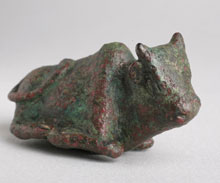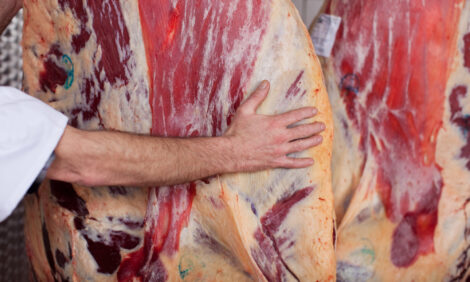



Results from domestication study could enhance livestock development
Study shows that the genetic makeup of water buffalo and cattle responded to breeding for human domestication in similar ways.Similarities in how water buffalo and cattle have responded to human domestication, through selective breeding, could aid the development of more productive, healthy livestock.
Domestication has had comparable effects on regions of the genetic makeup of cattle and water buffalo associated with key production traits, including milk yield, disease resistance and birth weight, scientists found.
Given that the water buffalo is closely related to cattle, understanding how its genetic makeup – known as genome – has changed over time has potential to improve both species.

If genetic sequences linked to beneficial traits can be found in different species, gene-editing techniques may help improve the productivity and health of agricultural animals in low- and middle- income countries and so improve the lives of those who depend on them, researchers suggest.
Shared impacts of domestication likely extend to other species, the study led by researchers from the Roslin Institute and the Centre for Tropical Livestock Genetics and Health (CTLGH) shows.
For example, the DNA change that causes a black coat colour in German Shepherd dogs was also found in some water buffalo, which have been selected for coat colour.
The study also found that regions of the cattle and water buffalo genomes linked to domestication overlap those associated with stature in the human genome, likely resulting from human pressures to increase animal size.
The study, published in Nature Communications and funded by CTLGH, the Government of India and the UK Research and Innovation’s Biotechnology and Biological Sciences Research Council, is one of the first to examine multiple water buffalo genomes.
The researchers compared the genomes of 79 water buffalo to those of 294 cattle from around the world, and other domesticated species.
Water buffalo are important for milk, meat and as working animals in the Indian subcontinent and millions of smallholder farmers in Asia rely on them for food and income.
Dr James Prendergast, Senior Research Fellow at the Roslin Institute, said: “We hope that by better understanding the genetics of domestication across cattle and water buffalo we can use the knowledge we have gained about one species and apply it to another, to further improve animal health and productivity.”


